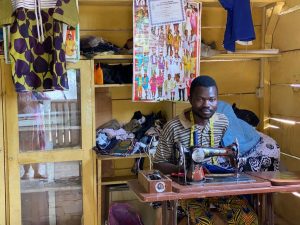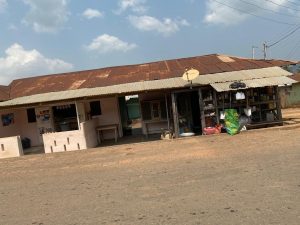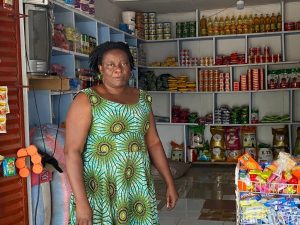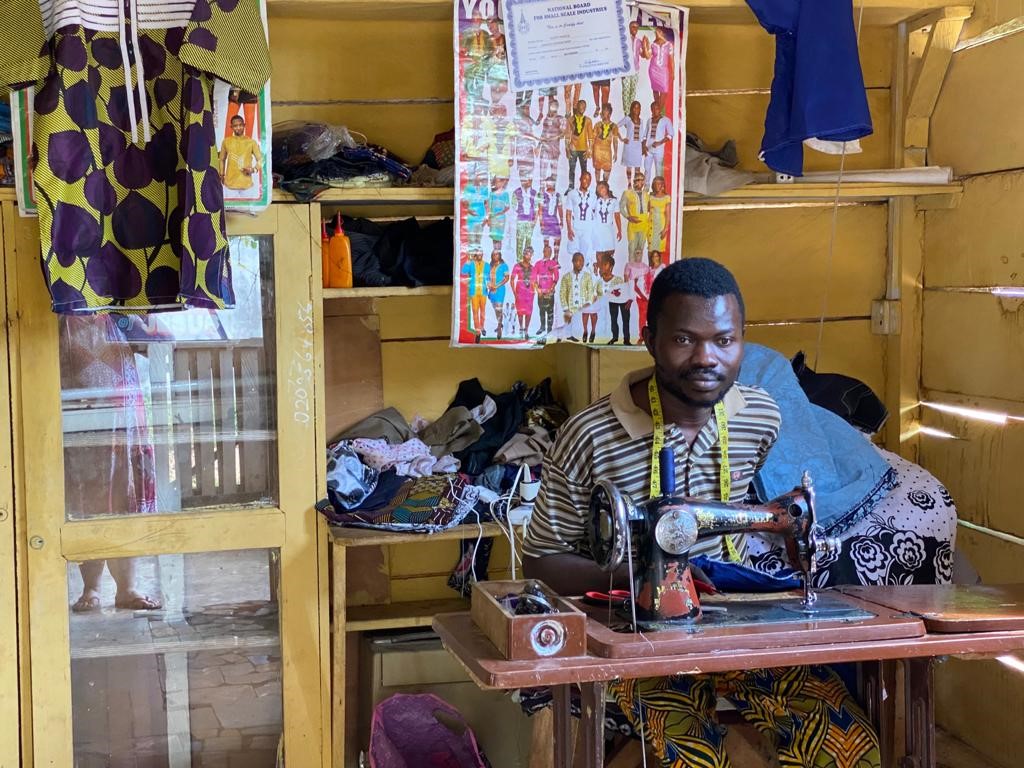Life in Peki
By Larry Colvin, serving with the Evangelical Presbyterian Church, Ghana.

Ghana is always hot. The static, still days of January allow the heat to be a bit more all-pervading. Life at the seminary is quiet as the students left in mid-December for semester break. Public schools opened 15 January, the first time since Covid-19 forced the government to close them in March. The seminary, however, will not bustle to life again until its second semester begins in February. So for now, life is unruffled.
Peki is one of those towns large enough that not everyone knows everyone but small enough that as one walks along the streets, people greet one another. For Debbie and me the children in particular love to greet us and will not stop doing so until we have returned the greeting to each one individually.

On one such quiet day I set out to purchase vegetables – okra, onions, and tomatoes. We do not have large super markets. The community is dotted with little shops that crowd the edge of the streets. One shop selling produce, another bread, another hardware and so on. As I entered the shop I greeted the shopkeeper and placed my order. She told me she was sorry she had no tomatoes but would have them later in the day. When shopping, unless one is making a large purchase, it is best to have on hand cedi notes (Ghanaian currency) in denominations of ten cedies or lower. I had only one twenty cedi note and I knew if I did not purchase the tomatoes, she would be unable to make change for the other items I was buying. I paid for the tomatoes in advance so she could provide the change without having to seek another shopkeeper for an exchange of currency.
Sometime later there was a knock at our door. Debbie went to the door and the shopkeeper’s daughter stood there carrying the tomatoes. Not knowing I had already paid, Debbie handed her the money. The girl also was not aware I had already paid. A few minutes later, the girl was again at our door. Her mother sent her back to return the money.

On another morning Debbie set out to buy eggs. The shopkeeper told her she had no eggs but they would arrive around five that afternoon. Debbie thanked her and said she would return that evening. Although Debbie was aware of other shops that do sell eggs, she also knew that if one shop did not have them, none of the shops would have them. (They might have eggs one or two days old but the shopkeepers would be quite reluctant to sell them to her.) Sure enough, about six that evening came a knock on our door and the same girl was there bearing 15 fresh eggs.
I share this with you during this time between semesters hoping to give you a glance at life in Peki. In many ways, I think this must have been the way of life in rural communities in the US and Canada during the late nineteenth century. And so, on this hot and still morning as I write this letter, I listen to the quiet sounds of people talking as they pass on the street and the baa of goats playing in the yard. We are blessed to be with God’s people and appreciate their kindness to the foreigner.
Larry Colvin serves with the Evangelical Presbyterian Church, Ghana. His appointment is made possible by your gifts to Disciples Mission Fund, Our Church’s Wider Mission, OGHS, and your special gifts.

